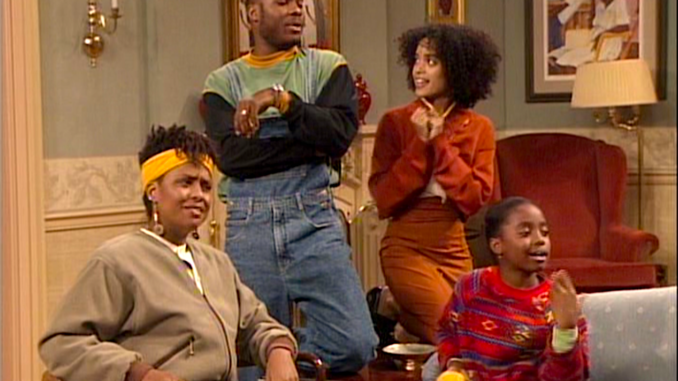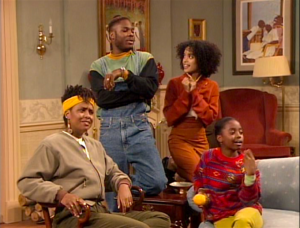
When The Cosby Show premiered on NBC in 1984, it quickly became one of the most iconic sitcoms in television history. The groundbreaking show, created by Bill Cosby, offered a refreshing and positive portrayal of an African-American family living in a Brooklyn brownstone, defying the negative stereotypes often depicted in the media at the time. The Huxtables—led by Dr. Heathcliff Huxtable (played by Cosby) and his wife, Clair (Phylicia Rashad)—became a symbol of success, family unity, and love, making the show not just a comedy, but a cultural phenomenon.
For nearly a decade, The Cosby Show was a consistent ratings powerhouse, breaking records and reshaping the television landscape. It introduced a new vision of Black life on television, one that was aspirational, joyful, and filled with love. But beyond its success and impact, The Cosby Show also became a lightning rod for controversy, particularly as Bill Cosby’s personal life became mired in scandal.
In this article, we will take a deep dive into the many layers of The Cosby Show—its cultural significance, its memorable cast of characters, the enduring impact it has had on television, and the complicated legacy of its creator. Whether you’re a lifelong fan or someone curious about the show’s journey, this exploration will offer a fresh perspective on why The Cosby Show remains one of the most influential sitcoms of all time.

The Birth of The Cosby Show: A New Era in Television
Before The Cosby Show, African-American characters on prime-time TV were often relegated to stereotypes. Shows like Good Times and The Jeffersons featured Black families, but their narratives often focused on poverty, struggle, and overcoming adversity. While these shows were groundbreaking in their own right, they didn’t present the full range of African-American experiences.
Then came The Cosby Show, which introduced a new archetype: the Black middle-class family. The Huxtables weren’t struggling to make ends meet; they were a well-off, well-educated family. Heathcliff was a respected obstetrician, while Clair was a successful lawyer. Their children, though not perfect, were intelligent, motivated, and largely free from the hardships that were often associated with Black families on TV at the time.
The show’s portrayal of the Huxtables was not just a breakthrough—it was revolutionary. It provided an image of Black life that was aspirational, sophisticated, and full of humor. The family’s life in Brooklyn’s upper-middle-class neighborhood was relatable to many viewers, but it also allowed the show to break barriers and be appreciated by a wider audience. This was a significant moment in TV history: an African-American family was at the center of a major network sitcom, and they weren’t defined by struggle but by success and love.
Cosby himself—who had already found success as a stand-up comedian and actor—played a crucial role in shaping the show’s success. His character, Dr. Heathcliff Huxtable, was funny, warm, and wise. He wasn’t a perfect father, but he was a dedicated one, always finding ways to teach his children valuable life lessons. Bill Cosby’s charismatic and nuanced performance helped the show become not just a hit, but a cultural touchstone.
Breaking Records and Changing the Game
From the start, The Cosby Show was a ratings monster. It became the most-watched show in America within just two years of its debut. It was a runaway success, dominating the Nielsen ratings for five consecutive years. The show was credited with reinvigorating NBC’s Thursday night lineup, earning the network the nickname “Must See TV.” In many ways, The Cosby Show set the standard for sitcoms that would follow, proving that family-friendly television could be both entertaining and socially impactful.
But it wasn’t just about ratings. The Cosby Show revolutionized the way African-American characters were portrayed in the media. For years, TV had often marginalized Black characters or placed them in roles defined by social struggle. The Huxtables, by contrast, were a modern, progressive family whose lives mirrored those of many middle-class American households. They had careers, educations, and a solid family structure, but they were also loving, funny, and real.
The show’s cultural impact extended far beyond television. It helped reshape the image of African-Americans in the public imagination. In an era when Black Americans were often depicted in a narrow and limited light, The Cosby Show showcased a broader and more complex narrative. It became a model for how media could portray Black families as multifaceted and dynamic, moving away from one-dimensional stereotypes.
Memorable Characters and Their Legacy
While Bill Cosby’s portrayal of Dr. Heathcliff Huxtable was central to the show, it was the ensemble cast of characters that truly made The Cosby Show a cultural treasure. Phylicia Rashad’s portrayal of Clair Huxtable, the loving yet strong-willed matriarch of the family, became iconic in her own right. Clair was the perfect balance to Cliff’s laid-back style—she was intelligent, career-driven, and unafraid to speak her mind. Her presence on screen helped redefine the role of women on television, particularly Black women, who had often been relegated to secondary roles.
Then there were the children—each one unique in their own way, yet all reflecting the family’s values of intelligence, hard work, and love.
- Sondra Huxtable (Sabrina Le Beauf), the eldest child, was the ambitious one, often caught in the middle of the family’s high expectations.
- Denise Huxtable (Lisa Bonet), the free-spirited daughter, became a style icon, her rebellious nature balancing the more conventional elements of the family.
- Theo Huxtable (Malcolm-Jamal Warner), the only son, was the character many young viewers related to. His journey from adolescence to adulthood—often involving his struggle with schoolwork and self-esteem—was one of the most relatable aspects of the show.
- Vanessa Huxtable (Tempestt Bledsoe), the quick-witted middle child, always had a sharp tongue and sharp wit, often sparring with her father or siblings in hilarious ways.
- Rudy Huxtable (Keshia Knight Pulliam), the youngest, was the most innocent and endearing of the bunch. Her antics provided much of the show’s humor, and her lovable nature made her a fan favorite.
Each of the Huxtable children grew up in front of the camera, and audiences watched as they evolved from children into young adults. Their character arcs, like the show itself, were groundbreaking because they depicted Black youth in a way that had never been done before: as complex, aspirational, and full of promise.
